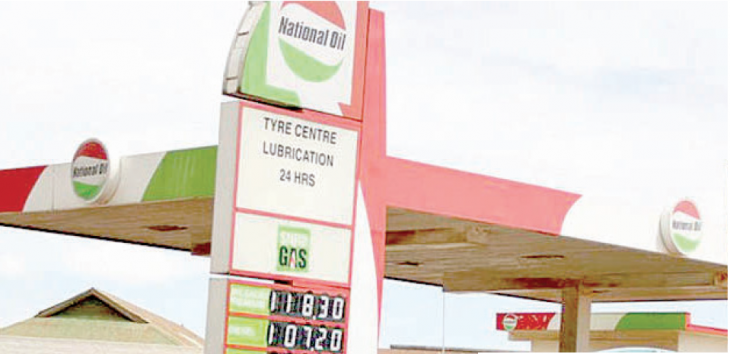State oil company gobbles billions amid fuel shortage

Kenyans in most parts of the country continue experiencing fuel shortages and higher costs despite promises that the crisis will end by April 17. The ongoing shortage has hit rural areas the most with Kenya Independent Petroleum Association (KIPEDA) saying the few retailers who procured bought it high prices, signalling that the tiff between the oil majors and the government is yet to calm down.
“The oil situation has not changed and nothing is going on. Independent retailers are getting fuel but at retail prices instead of wholesale prices excluding transportation costs,” KIPEDA chairman Joseph Karanja told Business hub. However, Petroleum ministry confirmed that the majority of petroleum retail stations were carrying out business as usual.
“The long queues witnessed in the past two weeks were gone, and normalcy in petroleum supplies was restored,” said a statement from Acting Petroleum Cabinet Secretary Monica Juma said on the petroleum supply update. Kenya Pipeline Company commenced the discharge of 120 million litres of super petrol after which 212 million litres of diesel will be discharged.
Face sanctions
“It is clear that the supply of petroleum products is well within plan,” the statement read in part. Last week, the government threatened dominant private firms after Energy and Petroleum Regulatory Authority (Epra) proposed a reduction of fuel allocation for oil majors found hoarding fuels, but with claims that parts of the country are still in pain.
Among those on the State’s radar include Vivo, Rubis and TotalEnergies who control about 49.8 per cent of the sector.
“For the next three important cycles, a key consideration should be given to the following, reduction of capacity share for all OMCs who increased their transit volumes over and above the normal quota during the supply crisis period,” Epra said in a statement. But questions abound about the role of the National Oil Corporation of Kenya (NOCK) which should ideally be sorting out the fuel shortage in such far-flung areas during shortages. The government now plans to use the utility to bring in 30 per cent of fuel into the country to cushion the economy.
While NOCK is not among the companies to face sanctions, audits indicate that the loss-making company has been dogged with mismanagement, theft and plunder over the years, leaving it a shell of its former self as its peers rake in billions in profit.
The audit showed NOCK recorded losses of at least 4,097,221 litres of diesel and 341,063 litres of super petrol brand valued at Sh365.96 million in aggregate between July, 2017 and December, 2018. A further loss of 32,000 litres of diesel valued Sh3.27 million was reported in June, 2019. “The Corporation (NOCK) is, therefore, technically insolvent and its continued existence as a going concern is dependent upon the financial support of the government, bankers, and its creditors unless management puts in place measures to improve the performance,” Nancy Gathungu said in a 2021 audit report.
Billions of shillings have been gobbled by the NOCK over the years with no value for taxpayers, revealing how the corporation has become a spoiled brat shielded from government’s sanction on errant players in the critical petroleum sector. Since its formation, the corporation has undertaken various multi-billion projects, most of which have been abandoned or unfinished and money squandered, but the Treasury keeps on pumping more cash.












